News
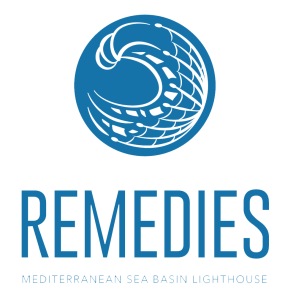
REMEDIES INTERNATIONAL REPLICATION: CLEAN-UP EVENT ON THE COASTLINE OF UMAG, CROATIA
REMEDIES launched its first replication of clean-up activities, which took place at the Croatian coast around city of Umag on 12th December 2023. The event was co-organized by You(r)Sea Institute for the Conservation of Marine Biodiversity, and University of Maribor (UM) under REMEDIES project. The clean-up was also supported by Municipality of Umag, founders of Planet Matters, and REMEDIES partner Clera.One.
Planet Matters video.
The clean-up campaign took place around the historic town center of Umag, which is heavily burdened by plastic and other waste. In just a few hours, the participants managed to remove a total of over 480 kg of waste, of which 145 kg was plastic waste. In addition to unexpectedly large quantities of cigarette butts and plastic bottles, the volunteers also found bulky waste such as deckchairs, broken buoys and even a discarded bicycle stranded on the coast.
Special thanks goes to Irena Fonda from You(r)sea, and Felix Krainer from worldwide plastic cleanup movement named Planet Matters, for supporting this action and promoting our work via social media channels. The collaboration between these organizations with expertise in marine biodiversity, environmental science, and social media awareness-raising is bringing fruitful future endeavors in cleaner Mediterranean coastline.
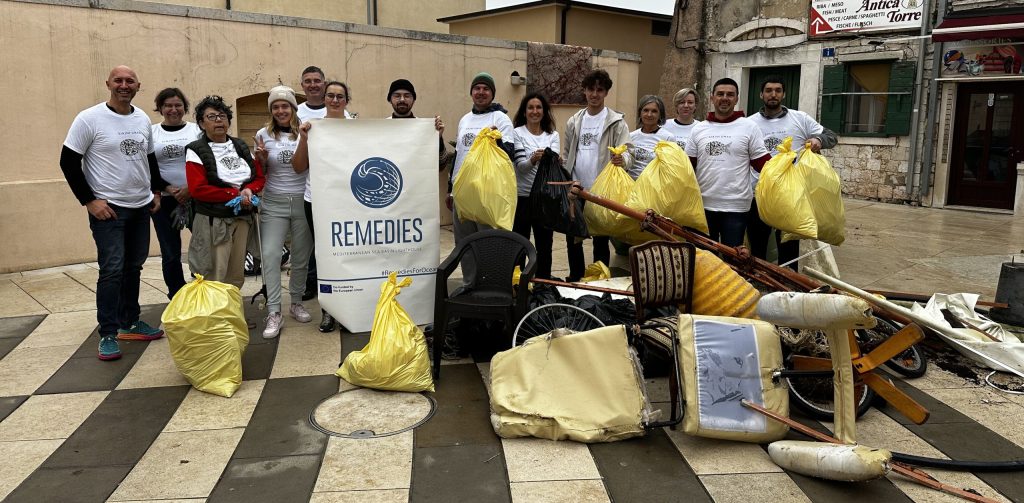
Participants of the clean-up: You(r)Sea Institute, REMEDIES partners UM and CLERA, Planet Matters, and the Municipality of Umag.
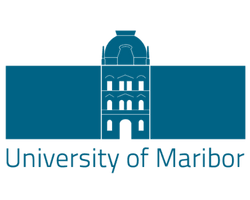 |
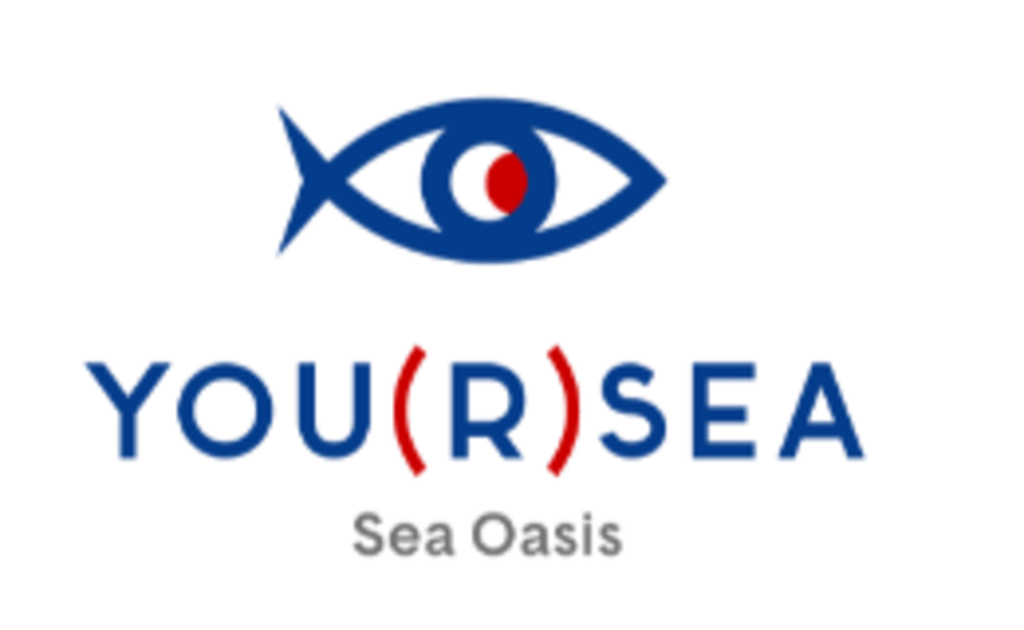 |
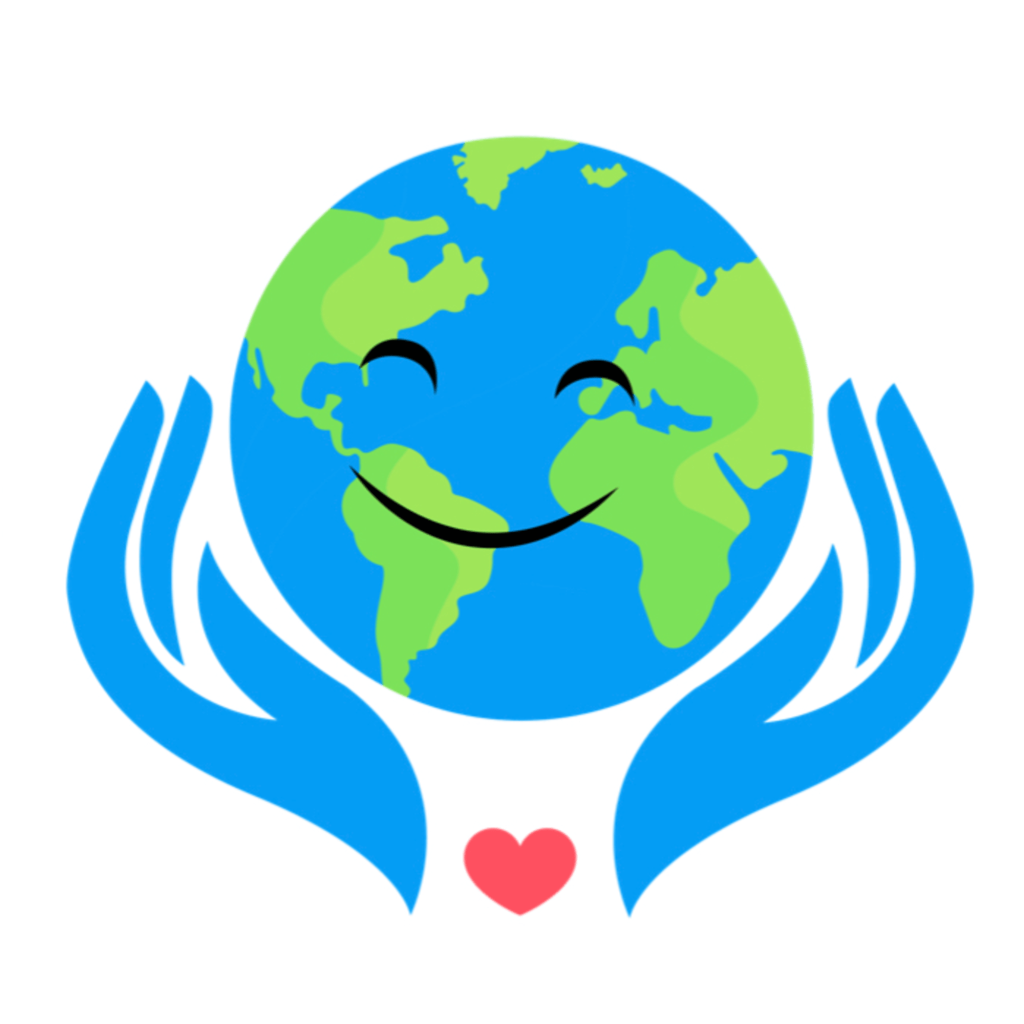 |
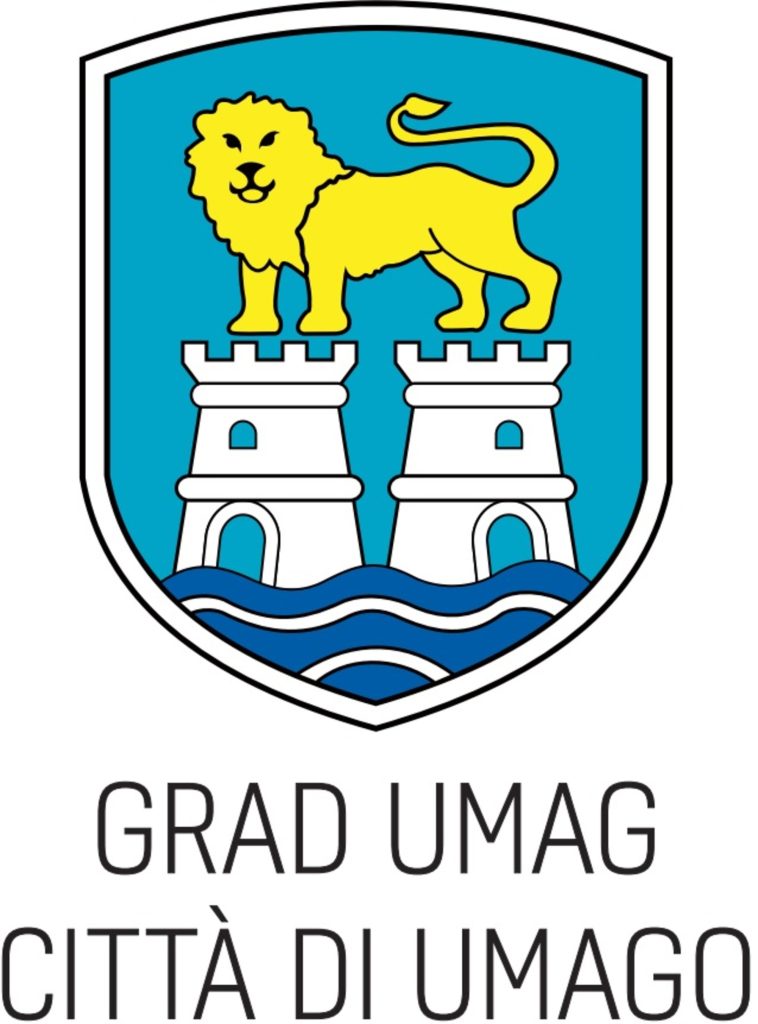 |
________________________________________________________________________________________________________________________________
ADOPTING A BEACH ON THE SLOVENIAN COASTLINE
The University of Maribor, Faculty of Chemistry and Chemical Engineering, has completed the process of adopting a section of the Slovenian coastline through the “Adopt your piece of the coast” initiative led by the Public Institute Landscape Park Strunjan. The 100-meter section of the coastline has been adopted for purposes of beach litter monitoring under the REMEDIES project, which will be conducted four times per year over the next three years, starting in January 2024.
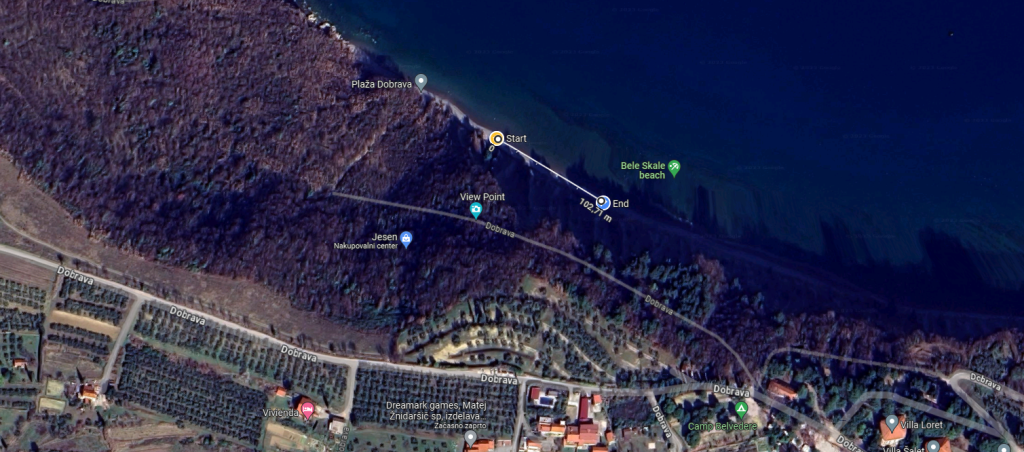
Satellite image of the adopted section of the beach.
The adopted section of the coastline at Bele Skale will remain reserved for seasonal beach litter monitoring under the REMEDIES project, which will be performed by scientists from the University of Maribor (UM) and the National Institute of Chemistry (NIC). The adoption of the beach was realized by the group coordinator dr. Annamaria Vujanović from UM and in collaboration with Brina Knez from the Public Institute Landscape Park Strunjan.
Beach monitoring activities will include categorization of identified litter into specific origin groups with the aid of the monitoring app and portal developed by partner INFORDATA. The beach litter data will be compiled and sent to the European Marine Observation and Data Network (EMODnet) database as official and reliable information on marine litter trends in Slovenia.
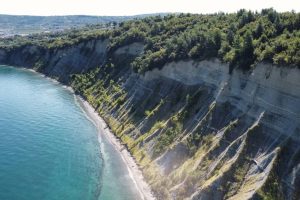
Beach on the coastline of Bele Skale in Slovenia.
The beach adoption is supported by the “Adopt your piece of the coast” initiative led by the Public Institute Landscape Park Strunjan. Its purpose is to maintain biodiversity and preserve natural ecosystems in coastal areas through a consolidated effort by Mediterranean coastal countries against marine litter pollution. Our gratitude goes to the Institute for their expert guidance and efforts in protecting the beaches in Slovenia.
________________________________________________________________________________________________________________________________
FIRST MOROCCAN BEACH CLERAN-UP
The first REMEDIES beach clean-up event in Morocco took place on November 30 after the project’s General Assembly and was co-organized by Mohamed First University (MOH), University of Maribor (UM), and Venice Lagoon Plastic Free (VLPF). The clean-up was conducted in collaboration with the NGOs “Association Homme & Environnement” and “Ecoloplatforme de la région de l’oriental” as well as the Ras El Ma high school. In addition to volunteer efforts from REMEDIES partners, over 40 volunteers and students from the local area participated in the clean-up activities.
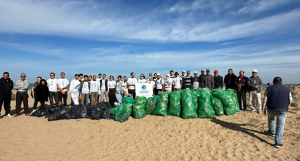
Beach clean-up activity group photo of REMEDIES partners and local NGOs.
The clean-up took place on the beach in the Saidia area, more precisely on the shoreline of Ras El Ma. The efforts on this beach near the border with Algeria managed to remove over 360 kg of total litter from the beach, 160 kg of which was represented by plastic litter. Our gratitude goes to all the participants of the clean-up action who contributed with their voluntary work to improve the state of the Moroccan shorelines.
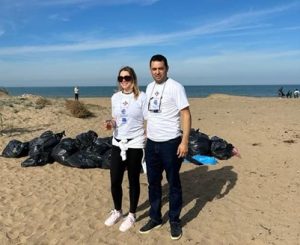
Co-organizers of the beach clean-up: University of Maribor (dr. Annamaria Vujanović) and Mohammed I University (dr. Alae-Eddine Barkaoui).
The knowledge transfer based on beach clean-up activities will enable the local partners to organize large-scale clean-up events in the future to keep the Moroccan beaches cleaner for the future. REMEDIES also looks forward to future collaborations with all-encompassing clean-up actions in Morocco through organizations such as The Mohammed VI Foundation for Environmental Protection, which is covering over 100 of the busiest Moroccan beaches to keep them clean and safe.
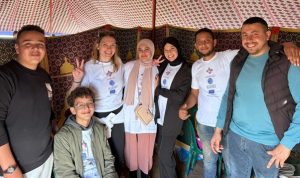
Volunteers from local Ras El Ma school at the beach clean-up.
________________________________________________________________________________________________________________________________
PRE-DEPLOYMENT TESTING OF CLERAONE FILTRATION TECHNOLOGY
Testing of CleraOne filtration technology was conducted at Laboratory for Process System Engineering and Sustainable Development, University of Maribor (UM) for the purposes of establishing the effectiveness of the proposed technology before deploying it in Marina Koper as part of Koper Demo site. The research was conducted by Kostja Klabjan CEO funder of CleraOne and dr. Annamaria Vujanović, representative of UM and leader of Koper Demo site in Horizon Europe Mission project REMEDIES.
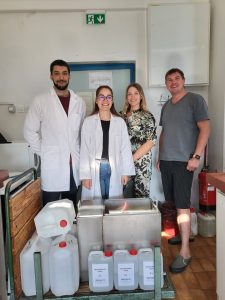
The research team that conducted CleraOne filtration technology effectiveness test: Jan Puhar (UM), Dajana Jeglič (CleraOne), dr. Annamaria Vujanović (UM), Kostja Klabjan (CleraOne).
Innovative filtration technology with silicon carbide (SiC) membrane and pore size of 100 nm, have been tested on the modelled water by the protocol proposed from dr. Mariacristina Cocca, Institute of Polymers, Composites and Biomaterials (IPCB) at The National Research Council (CNR). Prepared water samples with 0.5 mm size polyethilentheraftalate (PET) in high (50 mg/L) and low (0.087 mg/L) concentration has been filtered in the laboratory, and further sent to CNR for the analysis. PET microplastic samples from model waters on filter paper before and after filtration process with CleraOne filtration technology.
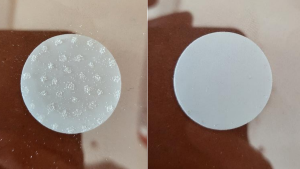
PET microplastic samples from model waters on filter paper before and after filtration process with CleraOne filtration technology.
The proposed low concentration corresponds to the concentration of microplastics in some parts of the ocean, and proposed high concentration correspond to concentration of microplastics in wastewater streams after washing processes. CleraOne together with University of Maribor (Koper Demo site leader) is planning to carry out deployment and testing of innovative filtration technology in Marina Koper in the beginning of year 2024. Annual vessel maintenance requires washing to peel of the old antifouling layer, causing treads to marine environment and consequently to human health. That is the reason why Marina Koper is aiming to perform sustainable vessel washing by capturing dangerous pollutants like microplastics and re-using water for washing.
________________________________________________________________________________________________________________________________
PANEL DISCUSION ABOUTH MICROPLASTIC AT TBMCE CONFERENCE
Faculty of Chemistry and Chemical Engineering, University of Maribor (UM) in collaboration with SRIP Circular Economy, hosted an international conference on Technologies and Business Models for Circular Economy – TBMCE, which was held in Portorož, Slovenia from 6th till 8th September 2023.
The plastic problem that humans have created was discussed in a panel entitled “Combating Plastic and Microplastic Pollution in our Waters – Challenges and Solutions”. The panel discussion was moderated by dr. Annamaria Vujanović from UM, who is leading sustainability work packages within two Horizon Europe Mission projects INSPIRE and REMEDIES, focusing on the detection, elimination and prevention of plastics and microplastics in European seas and rivers. The conference also welcomed several representatives of the EU Mission projects INSPIRE and REMEDIES, including University of Maribor, Clera.One, Infordata and National Institute of Chemistry (NIC). The experts exchanged valuable knowledge and ideas to advance the cause of these projects and look towards future innovations.
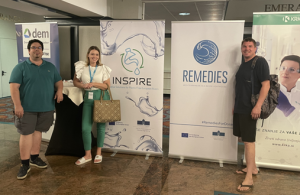
Representatives of partners in the Horizon Europe projects INSPIRE and REMEDIES: Marko Petelin (Infordata), dr. Annamaria Vujanović (University of Maribor), Kostja Klabjan (Clera.One).
The panel was honoured to host national and international experts from the scientific community, business as well as NGOs. The experts on panel discussion drew attention on the various laws concerning waste management. dr. Mojca Škerget, a full-time professor at the University of Maribor and a specialist in separation formulation processes and processes involving subcritical and supercritical fluids, pointed out that after China banned foreign waste in 2018, most of waste ends up in Indonesia or Turkey. The main issue is that where we have no information about what happens to plastic waste outside the European Union. dr. Andrej Kržan, research director at PlanetCare and a scientist working on waste management, added that big companies do not listen to professionals when they warn about climate change and the impact of plastic waste on the environment and human health. Maria Westerbos, founder and director of the Plastic Soup Foundation and one of the leading names in the fight against plastic and microplastic pollution pointed out that the fossil fuel industry is still investing in the mass production of plastics today, which is unacceptable because it is in their interest to continue exploiting the environment without considering the impact on humans, animals and the planet. dr. Mateja Grego, a research associate at National Institute of Biology and a team member of HEU Mission project named Plastic Pirates, which deals with marine biology and microplastic pollution in marine sediments, explained that plastics in water break down mechanically into small particles quite quickly due to various factors (e.g. sun exposure).
The expert also pointed out the importance of the excessive use of single-use plastics – the extraction of oil alone and its further processing into single-use plastics is resource and energy intensive and has a huge impact on the environment. In addition, not all single-use plastics can be recycled. dr. Mojca Škerget explain the solution of chemical recycling of plastic waste (e. g. PET bottles), but the problem is that consumers recycle inadequately, resulting in waste that is only suitable for incineration. Bart Stegeman, developer of new products and processes at Climate-KIC added that consumer awareness supported by activities in EU projects involving citizens is the key.
The experts concluded that the key issue is the overproduction and overuse of plastics, and since we are far from the EU recycling targets and even further from Green Deal, it is important that scientists and activists work together with politicians and relevant organisations to ensure sustainable change for future generations.
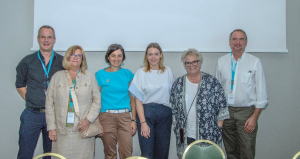
Experts on panel discussion “Combating Plastic and Microplastic Pollution in our Waters – Challenges and Solutions”: Bart Stegeman (Climate-KIC), dr. Mojca Škerget (UM), dr. Mateja Grego (NIB), dr. Annamaria Vujanović (UM), Maria Westerbos (Plastic Soup Foundation), dr. Andrej Kržan (NIC, Planet care).
_____________________________________________________________________________________________________________________
FIRST SLOVENIAN CLEANUP IN STRUNJAN
First Slovenian REMEDIES beach clean-up event was organized by University of Maribor on 15th April 2023 in cooperation with Public institute Landscape Park Strunjan. In addition to four REMEDIES partners, over 40 volunteers from the local area participated in the clean–up activities.
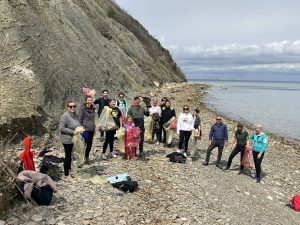
Group photo of all participants at cleanup event.
Dr. Annamaria Vujanović, from the University of Maribor, REMEDIES project partner and Slovenian demo site leader, stated that the clean-up was successfully conducted and that we are looking forward to further collaborations in beach clean-ups as well as in other activities related to sustainable management of marine litter for plastic-free beaches. The clean-up took place on the beach in the Strunjan area, more precisely, the litter was collected on Bele Skale beach along the shoreline and up to the Ronek peninsula. During the clean-up, participants collected macro- and mezo– plastic waste (objects larger than 2.5 cm). The beach litter was separated into two bags, one for plastics and the other for waste comprised of different materials. The majority of collected waste was plastic – mainly fishing gear, various food packaging materials, styrofoam, and cigarette butts.
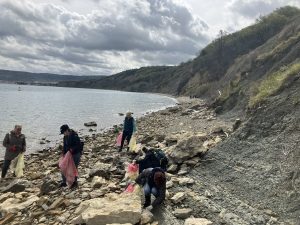
Volunteers picking up the litter on the beach.
Other REMEDIES partners involved in the activities were the National Institute of Chemistry (NIC), Clera.One (CLERA) from Slovenia and and an international guest, the Italian NGO Venice Lagoon Plastic Free (VLPF) performing the role of Lighthouse for REMEDIES beach litter clean up and monitoring activities. Representatives from KI tested NIR scanners on the beach to determine the typology of plastic litter, while Dr. Davide Poletto from VLPF provided technical assistance in line with the European Marine Observation and Data Network (EMODnet) database with data collected on Slovenian beaches.
In addition to coastal clean-up, REMEDIES project partner CLERA tested the capabilities of underwater drones to observe the seafloor, detecting macro-litter, and confirming the presence of microplastics in the scanned waters.
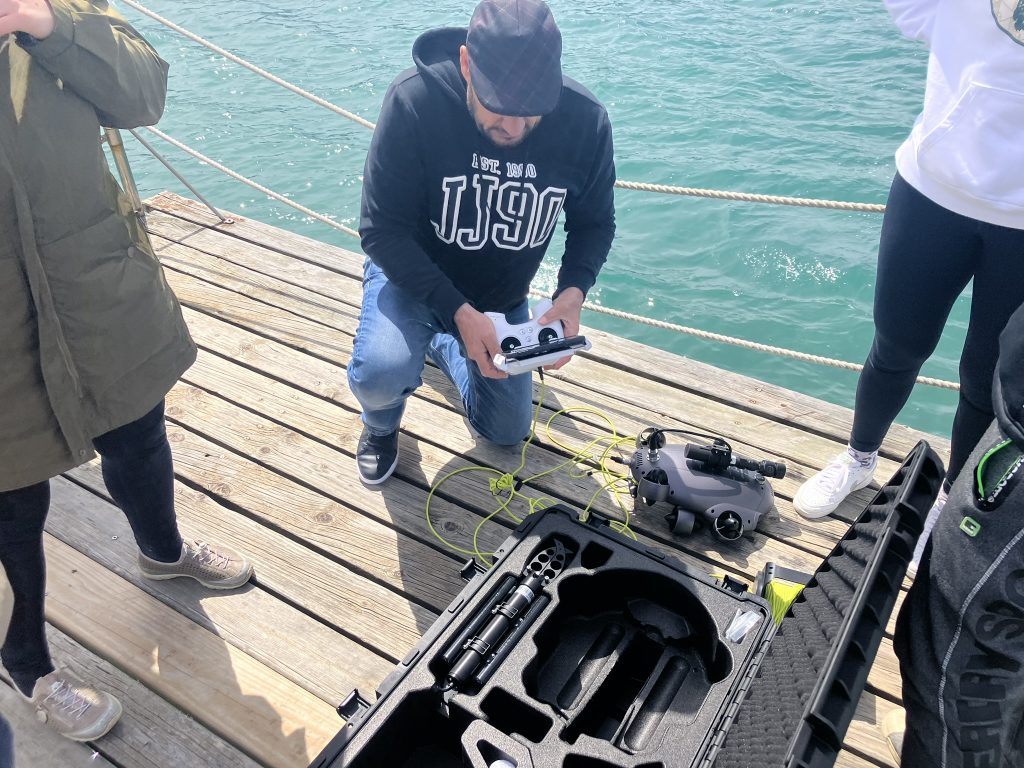
Water drone testing.
Over 60 kg of plastic litter was collected at the clean-up, also with the support of the Tourist Association Solinar and Terme Krka d.o.o.
Special thanks go to all participants of the clean-up action who contributed with their voluntary work to improve the condition of our shorelines in Slovenia. We shall invite more students and employees from the University of Maribor to join us in future clean-up events.
